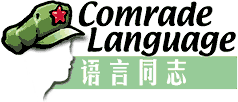|
If
you've been in China for more than 15 seconds you've
most likely heard one of the infamous Chinese "sayings"
(known in the West as "stereotypes") about foreigners.
Although many Westerners have been taught that stereotyping
and separation of peoples is both inconsiderate and
uncool, in China it's really just a means of self-affirmation.
Unfortunately, for every hundred foreigners who try
to dispel stereotypes about themselves in China, all
it takes is one loudmouth laowai (foreigner) to get
on TV and reinforce these cultural confusions. Don't
expect to convince anyone not to gei renjia tie biaoqian
(put labels on people). Better to be prepared for the
lao yi tao (stereotypes) and some commonly espoused
epithets, trivial truisms, and fancied fiction about
non-Chinese people.
"That Smarts"
If you're a youtai ren (Jew), a zuo piezi (lefty), a
hun xue (a person of mixed blood) or you simply know
how to use chopsticks, congratulations - you are congming
(smart)! If you think you might be a hun xuer but aren't
sure how smart you are, keep in mind that there are
a few tiaojian (conditions) that have to be met before
the congming label can be stuck on your forehead: In
China, a person of "mixed blood" refers to the child
of two parents of different skin color. The child of
a German-French "mixed" marriage or the child of a Korean-Japanese
"mixed" marriage is not as smart as, say, the child
of black and white parents.
An interesting maodun (contradiction) that should be
pointed out is that although, according to Chinese tradition,
lefties are supposed to be smart, no self-respecting
Chinese parent would ever allow their child to use his
or her left hand to do ANYTHING. It's just too bu fangbian
(inconvenient) to eat or write Chinese characters with
your left hand, or so they say.
What using kuaizi (chopsticks) has to do with intelligence
is highly debatable. Comrade Jerry Seinfeld once made
a funny comment about kuaizi. He said, "You have to
give it to the Chinese for determination. They've seen
the fork. Out on the farms, the hay?the pitchfork. But
they're still sticking with the ol' chopsticks!"
"Wanton-ness"
If waiguo guniang tai suibian (foreign girls are loose)
and zhongguo guniang baoshou (Chinese girls are conservative),
then why does China have 1.3 billion people? You shouldn't
yi mao qu ren (judge a book by its cover), but talk
about baoshou, the last time I saw three girls walking
down 42nd street in Manhattan wearing spiked-heel leather
boots, tight leather miniskirts, beepers and no bras,
they were arrested for soliciting.
"Food For Thought"
Waiguoren buneng chi la de (foreigners can't eat spicy
food). Perhaps, like the Koreans, Mexicans are actually
descended from the Chinese. That would make them "not
really foreigners" and would explain why they can eat
spicy food.
xican chi bu bao (you can't get full on Western food).
Let me just offer a big duoxie (thanks a lot) to those
tongbao ("compatriots") from Hong Kong and Taiwan, many
of whom have never even been to the West, who open up
over-priced "Western" restaurants in China and screw
the laobaixing (Average Joes) out of their hard-earned
RMB by charging them outrageous prices for crappy morsels
of bad-tasting junk.
Waiguoren ai chi mianbao (foreigners like to eat bread).
That would explain the "meals" served on domestic flights
(i.e. a piece of bread, slice of bread, hunk of bread,
chunk of bread, lump of bread, crackers, croutons and
a piece of dry, crumbly cake. Oh, yeah, I almost forgot
to mention the little packets of salt and pepper they
give you in case your bread is too bland).
Another popular stereotype is that Chinese food is somehow
complicated and difficult to make, and Western food
is a snap. Ever try cooking lasagna with a wok, some
oil and a burner? In about three minutes' time? The
guy who invented guoba (rice crust) in actuality simply
burned his rice by accident and then said he did it
on purpose to keep from losing face. Hence, a new "complicated"
dish!
"Watch Your Language"
The words wiayu and shijieyu used to mean "foreign languages"
and "Esperanto," respectively. Now they both mean "English."
The erroneous assumption thatwaiguoren dou hui shuo
yingyu (all foreigners speak English) will probably
continue to exist for a while, so a heartfelt apology
goes out to all those non-English speaking French, Spanish,
Italians, Russians, Australians, et al in China who
are forced to speak English with Chinese people instead
of using the Chinese they have studied. It is widely
believed that zhongguo hua tai nan xue (Chinese is too
difficult to learn), despite the fact that 1.2 billion
Chinese people speak it, so unless you have Asian features,
don't expect English-speaking Chinese people to speak
Chinese with you.
Miscellaneous Misconceptions
Thanks to TV shows like McGyver, Knight Rider, Airwolf,
Cover Up and all those other asinine 1980s American
programs which you can now watch in China, there is
a growing belief that meiguoren dou you qiang (all Americans
carry guns). Of course, the news about America that
makes its way to the Chinese people doesn't exactly
smash that stereotype.
Furthermore, if you're a foreigner, you'll be happy
to learn that you are rich! (Although you may not have
been aware of it). You see, waiguoren dou you qian (foreigners
are all rich). This is a very popular stereotype that
explains the whole dual pricing system. It also helps
rationalize charging US$10,000 per month to rent a "Luxury
Garden Splendid Palace Home" outside the fifth ring
road in a developing country. The other side of that
coin is the saying, ÖÐzhongguoren qiong (Chinese people
are poor), a "fact" that you may not have noticed with
all the BMWs, Audis, Mercedes and mobile phones around.
The Comrade, of course, has no pianjian (prejudices).
He makes fun of everyone, regardless of race, religion
or sex!
|


